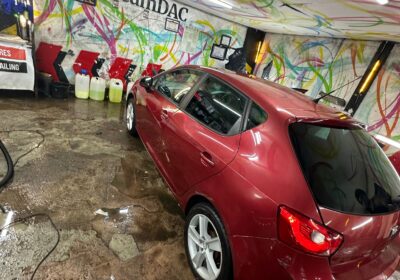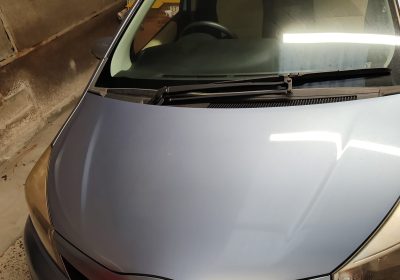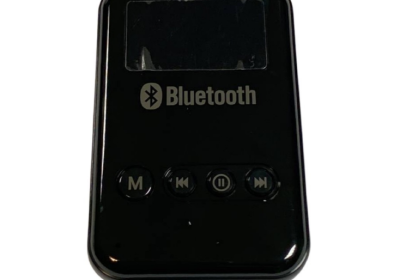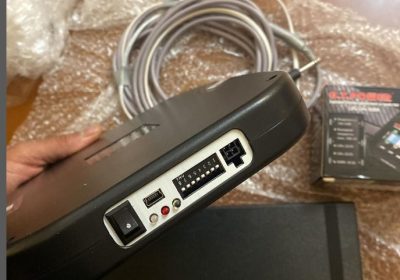When it comes to purchasing a used car, many options are available. One of the popular choices is buying from a private seller. While this can be an exciting and cost-effective way to acquire a vehicle, it’s essential to approach it with caution. In this article, we will explore the ins and outs of buying a used car from a private seller, addressing the potential risks, necessary precautions, and steps to take to ensure a successful purchase.
What to Bring When Buying a Used Car from a Private Seller
Before heading out to meet a private seller, it’s crucial to gather the necessary items to facilitate a smooth transaction. Here are the key things you should bring:
- Essential Documents:
- Your driver’s license or ID
- Proof of insurance
- Cash or a certified check for payment
- Any pre-approved financing paperwork, if applicable
- Tools and Equipment:
- A flashlight for inspecting the vehicle’s nooks and crannies
- Tire pressure gauge
- Diagnostic scanner, if available
- Jack and lug wrench for tire inspection
- Test Drive:
- Request to test drive the vehicle to assess its performance
- Pay attention to the engine, brakes, steering, and suspension
- Note any unusual sounds, vibrations, or handling issues
- Thorough Inspection:
- Inspect the exterior and interior for any signs of damage or wear
- Check the vehicle’s history using online resources or a paid service
- Look for maintenance records and evidence of regular servicing
- Consider getting a mechanic’s inspection for a comprehensive assessment
Is It Risky to Buy a Car from a Private Seller?
While buying from a private seller can save you money, there are inherent risks involved. However, with proper precautions, you can minimize these risks and make an informed decision. Here’s what you need to know:
- Conduct Research:
- Research the make and model of the vehicle you’re interested in
- Check average market prices to ensure you’re getting a fair deal
- Look for common issues or recalls associated with the vehicle
- Warning Signs:
- Be cautious if the seller avoids providing clear answers or documentation
- Watch out for suspiciously low prices or rushed sales
- Avoid sellers who hesitate to allow inspections or test drives
- Seller’s Credibility:
- Trust your instincts and assess the seller’s honesty and integrity
- Ask questions about the vehicle’s history, ownership, and maintenance
- Request the vehicle’s registration documents and proof of ownership
- Vehicle History Report:
- Obtain a vehicle history report to check for past accidents or damage
- Look for any outstanding finance or mileage discrepancies
- Consider the report as an additional layer of assurance
Remember, a thorough inspection and research are essential to reduce risks when buying from a private seller.
What Can I Do if I’ve Been Sold a Faulty Car?
Despite taking precautions, there is a possibility of buying a faulty vehicle from a private seller. If you find yourself in this situation, here are the steps you can take:
- Keep Records and Documentation:
- Maintain all records, including emails, messages, and receipts
- Document the vehicle’s condition and any issues discovered
- Take photographs as evidence of the faults
- Contact the Seller:
- Inform the seller immediately about the problems encountered
- Request a resolution, such as repairs, replacements, or refunds
- Communicate in a calm and polite manner
- Seek Legal Assistance:
- If the seller is unresponsive or refuses to address the issues, consult a lawyer
- Obtain legal advice on your rights and the available courses of action
- Consider small claims court if the value of the car falls within the jurisdiction
- Alternative Dispute Resolution:
- Explore mediation or arbitration services to resolve the dispute
- These methods can provide a neutral ground for negotiations
- Keep in mind that the resolution process may vary depending on your location
Remember, acting promptly and maintaining proper records are crucial if you encounter a faulty purchase.
What Needs to Be on a Private Car Sale Receipt
When purchasing a car from a private seller, it’s important to have a well-documented sale receipt. Here’s what should be included:
- Buyer and Seller Information:
- Full names and contact details of both parties
- Addresses and driver’s license numbers, if desired
- Vehicle Details:
- Make, model, year, and vehicle identification number (VIN)
- Mileage at the time of sale
- Any additional features or modifications
- Sale Price and Payment Details:
- Agreed-upon sale price
- Payment method used (cash, certified check, etc.)
- Date and time of the transaction
- As-Is Statement:
- Include a clause stating that the vehicle is sold “as-is”
- Clarify that the buyer accepts responsibility for any future repairs
- Signatures and Witnesses:
- Both the buyer and seller should sign the receipt
- Consider having a witness present and obtaining their signature
Using a template or online resources can help you create a legally binding receipt that protects both parties.
Does “Sold as Seen” Still Apply in Private Sales?
The phrase “sold as seen” is often used in private car sales, suggesting that the buyer is purchasing the vehicle in its current condition. However, it’s important to understand its legal implications:
- “Sold as Seen” Concept:
- “Sold as seen” means the buyer accepts the vehicle’s condition at the time of sale
- It implies that the seller is not responsible for any defects or issues
- Legal Considerations:
- The concept of “sold as seen” may not absolve the seller of their legal obligations
- Sellers must not misrepresent the vehicle’s condition or conceal faults intentionally
- Buyers should still conduct proper inspections and due diligence
- Thorough Inspections:
- Even in “sold as seen” cases, buyers have the right to inspect the vehicle
- It’s crucial to assess the vehicle’s condition and take notes of any issues
- Inspections help ensure transparency and prevent disputes
While “sold as seen” may have some legal implications, it’s vital for both buyers and sellers to prioritize honesty and transparency during private car sales.
Which Part of the V5 Do I Give to the New Owner?
When selling a vehicle privately, you must transfer the ownership to the new owner. Here’s what you need to know about the V5 document (logbook):
- Understanding the V5 Document:
- The V5 document, also known as the logbook, proves vehicle ownership
- It contains information about the vehicle, including the registered keeper
- Different Sections:
- The V5 document has various sections, including sections A to F
- The correct section to complete for the new owner is section B (new keeper details)
- Completing the Transfer:
- Fill in the new owner’s details in section B
- Sign and date the document to confirm the transfer
- Give the completed section to the new owner
- Notifying the DVLA and Insurance Company:
- As the seller, you need to inform the DVLA about the change of ownership
- Contact your insurance company to cancel or transfer the policy accordingly
By correctly completing the relevant section and notifying the appropriate authorities, you ensure a smooth ownership transfer process.
What Are the 30-Day Consumer Rights for Cars?
When purchasing a used car, you have certain consumer rights, including a 30-day rule for faulty goods. Here’s what you should know:
- Overview of Consumer Rights:
- Consumer rights protect buyers from faulty or misrepresented goods
- These rights are particularly relevant when purchasing from a private seller
- The 30-Day Rule:
- The 30-day rule states that if a fault arises within the first 30 days of purchase, the seller is responsible for repairs, replacements, or refunds
- This rule applies unless the fault is due to the buyer’s misuse or negligence
- Faulty Goods and Statutory Rights:
- If a fault appears within the 30-day period, the buyer has statutory rights
- These rights entitle the buyer to a repair, replacement, or refund
- The seller cannot refuse or avoid their obligations under consumer law
- Steps to Take:
- Contact the seller immediately when a fault arises within the 30-day period
- Clearly explain the issue and assert your rights
- Document all communications and actions taken for future reference
By understanding your consumer rights and acting within the specified timeframes, you can protect yourself in case of faulty purchases.
Is It Illegal to Sell a Car That Is Not Roadworthy?
As a seller, it is illegal to sell a car that is not roadworthy. Here’s what you need to know:
- Roadworthiness Requirements:
- Roadworthy vehicles meet specific safety and environmental standards
- These requirements vary by jurisdiction but often include factors like brakes, tires, lights, and emissions
- Legal Obligations of Private Sellers:
- Sellers must ensure the vehicle is in a roadworthy condition at the time of sale
- Misrepresenting the roadworthiness of a vehicle is considered fraudulent
- Consequences of Selling an Unroadworthy Vehicle:
- Selling an unroadworthy vehicle can lead to legal consequences, fines, or penalties
- It can also put the buyer’s safety at risk and result in accidents or breakdowns
- Importance of Honesty and Integrity:
- Sellers should provide accurate information about the vehicle’s condition
- Disclose any known faults or issues that may affect roadworthiness
- Honesty and integrity build trust and protect both the buyer and seller
Always ensure that the vehicle you’re selling meets the necessary roadworthiness requirements to avoid legal complications and prioritize the safety of potential buyers.
Are Second-Hand Cars Sold as Seen?
Second-hand cars are not necessarily sold as seen. The concept of “sold as seen” can vary depending on the circumstances. Here’s what you should consider:
- “Sold as Seen” for Second-Hand Cars:
- While “sold as seen” can be used in private car sales, it does not absolve sellers of their legal responsibilities
- Sellers must still adhere to consumer protection laws and not misrepresent the vehicle’s condition
- Limitations and Potential Risks:
- Buying a used car without warranty or guarantees entails certain risks
- Sellers may exclude liability for defects unless they deliberately hide them
- Importance of Inspections and Due Diligence:
- As a buyer, it’s crucial to conduct thorough inspections and due diligence
- Request maintenance records and a vehicle history report to assess the car’s condition
- Professional Inspections:
- Consider hiring a professional mechanic for a comprehensive inspection
- This provides an expert opinion and peace of mind
While second-hand cars may not be explicitly sold as seen, it’s important to take necessary precautions and assess the vehicle’s condition before making a purchase.
Conclusion
Buying a used car from a private seller can be a rewarding experience, but it requires careful consideration and diligence. By following the tips outlined in this article, conducting thorough inspections, and understanding your rights as a buyer, you can minimize risks and make an informed decision. Remember to gather the necessary documents, be aware of potential issues, and maintain open communication with the seller. With these precautions in place, you can confidently navigate the process of purchasing a used car from a private seller.








